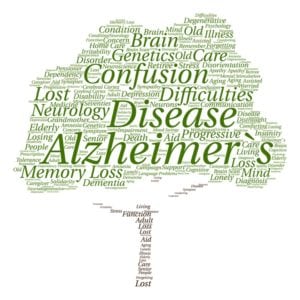Habilitation therapy is a therapeutic practice that is especially helpful in providing care to a person with Alzheimer’s. For Alzheimer’s patients, the loss of cognitive skills can be frustrating and lead to emotional outbursts.

Rather than focus on what the person used to do, habilitation therapy focuses on what is possible now and staying positive. Nothing is more important than celebrating accomplishments and maintaining a positive emotional state.
There are six key areas where habilitation therapy can be implemented by caregivers, friends, and family members during home care. They include:
- Assistance
- Behavioral
- Communication
- Perception
- Physical/Environment
- Social
#1 – Assistance
Your mom needs help with grooming. As you’re trimming her nails, she gets angry and keeps pulling away. How do you react? If you insist she sits still, it’s creating a negative experience. Stop and try again later.
#2 – Behavioral
Your mom is lashing out. She just shoved you into the wall. You do have to focus on your safety. Leave the room and start to think about what has changed. She may be developing aggression as one of her Alzheimer’s symptoms. She might have a health issue like a UTI that is causing her to be extremely uncomfortable.
#3 – Communication
People with Alzheimer’s do not comprehend material at the same rate they once did. Talking slowly in short sentences can help your mom understand what you’re trying to communicate. Keep eye contact and make sure you’re not stood in a shadow or in bright light. Keep your tone positive and happy.
# 4- Perception
Your mom may start having a hard time with vision. Large print books or picture books may be needed to help her stay positive. Are dark rugs on a light floor making her confused and uncertain? While it looks like a rug to you, it may look like a hole in the floor to her.
#5 – Physical/Environment
The physical environment can impact your mom’s behavior. If lighting is dim, it can be frightening to someone with Alzheimer’s. Noises that are too loud are also likely to cause agitation. Soothing colors and scents will do a lot when it comes to making your mom feel positive.
#6 – Social
Social interactions should be positive. To do this, you need to make sure that activities you plan engage your mom. Use her past experiences to guide what she would enjoy. If she never liked being in a large group, she’s not likely to have a positive experience at a huge, crowded party. If she grew up in a small oceanfront town, a day at the beach may be incredibly soothing.
If your mom has Alzheimer’s, you already have faced challenges. Using habilitation therapy techniques can help. Call our home care services agency to find out about the ways caregivers can help. Home care services aides can provide you with a break through respite care. We’ll also help you find the best ways to provide positive home care services to your mom.
If you or an aging loved one are considering Home Care Services in Needham MA, or anywhere in Eastern Massachusetts, please call the caring staff at CARE Resolutions – (508) 906-5572.
- Adapting Meals for Seniors with Chewing or Swallowing Difficulties - November 20, 2024
- How Playing Games Helps Alzheimer’s Patients - November 5, 2024
- What Seniors Should Know About Prescription Medicines - October 17, 2024



